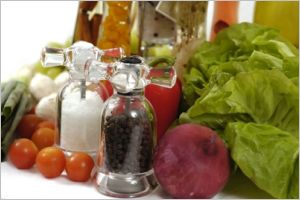The Truth About Organic Toddler Food
Organic toddler food is a way of making sure that your toddler has the highest-quality food you can get him. Our toddler’s little bodies are much more sensitive to chemicals, pesticides and other food contaminants than you and I are, and it’s important we pay attention to exactly what we’re giving our children, where it comes from, and what’s in it.

Organic toddler food is defined as toddler food that is grown on farms that don’t use chemical pesticides, fertilizers hormones, antibiotics, or genetic modifiers. It’s food grown using natural farming methods that utilize natural, clean farming methods.
Although the pesticides used in non-organic farms are toxic, there’s no definite information that regular produce sold in the supermarket contains a dangerous amount of toxic material. Still, buying organic produce is making sure you are one step safer. Organic produce also tends to taste much better than the standard; the sweetness of an organic tomato can’t be matched by conventional farmers.
Prepackaged Processed Organic Toddler Food
If you buy pre-packaged, processed organic toddler food you need to be aware that organic doesn’t necessarily mean healthy; it just means the food was grown with healthy, non-toxic methods. An organic candy bar is still a candy bar, and has just as much potential for hurting your child’s teeth, messing up his blood sugar levels, and squashing his immune system as a regular candy bar. So look carefully at the ingredients and the nutritional information for whatever you buy.
Where to Buy Organic
Organic food is not as hard to find as you might think. Even your standard supermarket probably has a section for organic vegetables. Otherwise, some good sources are:
• Your local farmers market. Look up the locations of farmer’s markets in your area; often they are held one day a week in central locations. At farmer’s markets you can find quantities of good, cheap organic produce.
• Local farms. Buying straight from a farm is another good option. Some farms have deals where, for a set price, you get a box of whatever vegetables are in season delivered straight to your doorstep every week.
• Your own garden. Planting and cultivating a garden can be a wonderful experience for both you and your toddler—and, as an extra bonus, you can get free organic food out of it! Even a small plot can be planted with vegetables, or, if you have no yard, try container gardening—growing vegetables in 5 gallon buckets or planters indoors.
Organic or No on a Budget
If your food budget is such that you can buy your child either an organic banana once a week or conventionally-grown food every day, by all means skip the organic. It’s more important that your toddler gets the vitamins from his daily fruit. It may be best to peel apples, though, and discard the last centimeter or so from your (standard sized) carrots.
If you can only buy some of your vegetables and fruits organic, choose the ones that are more likely to be contaminated with pesticides if they’re conventionally grown. That includes:
• Apples and Pears
• Peppers and Bell Peppers
• Celery
• Cherries
• Grapes
• Nectarines
• Peaches
• Pears
• Potatoes
• Raspberries and Strawberries
• Spinach
Vegetables and fruits that are unlikely to be contaminated by pesticides include pineapple, kiwi, mango, banana, avocado, sweet peas, eggplant, onion, sweet corn, asparagus, and broccoli.
Enjoy shopping for and preparing organic toddler food and create some wonderfully tasty, delicious meals for your toddler!
Return to Toddler Health from Organic Toddler Food
Return to Toddlers Home from Organic Food
New! Comments
Have your say about what you just read! Leave me a comment in the box below.